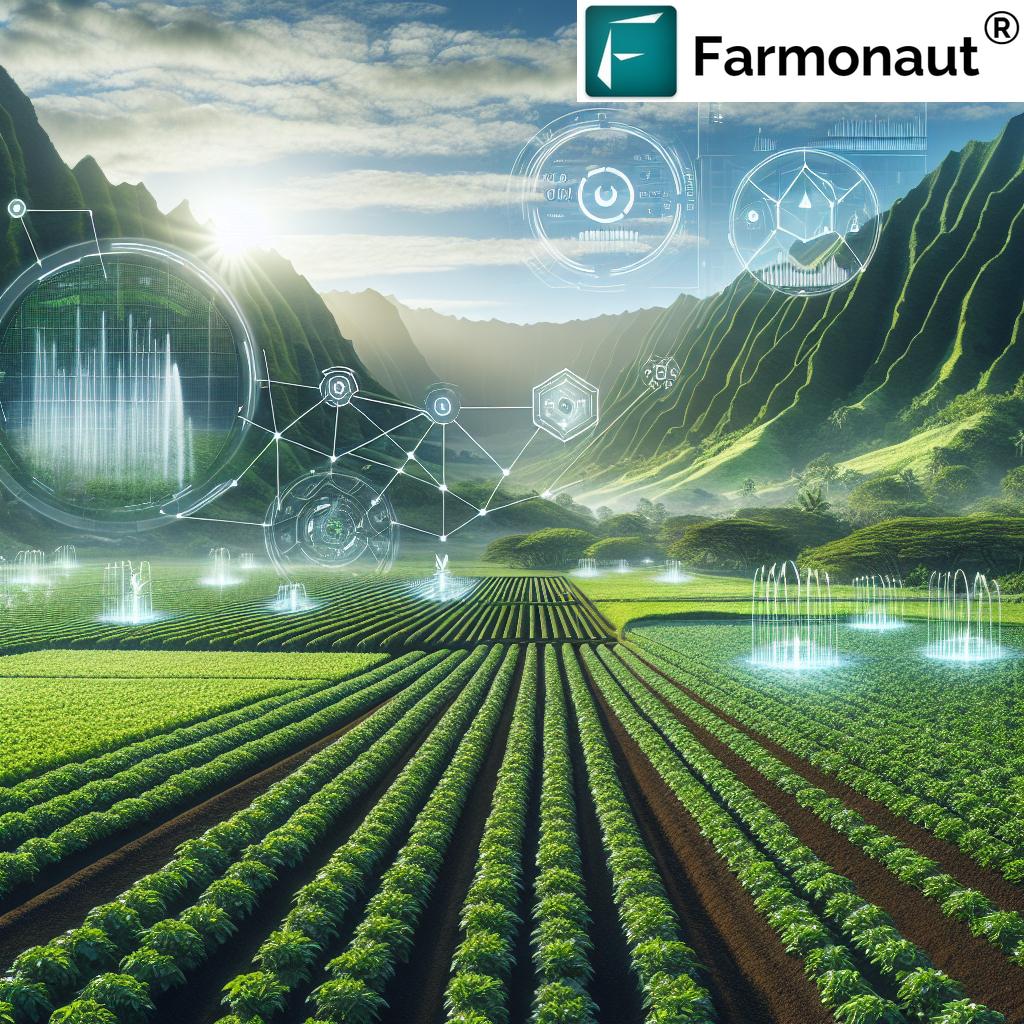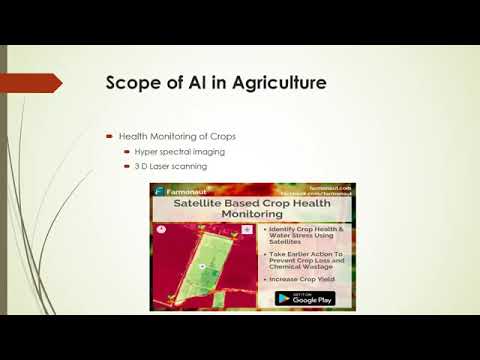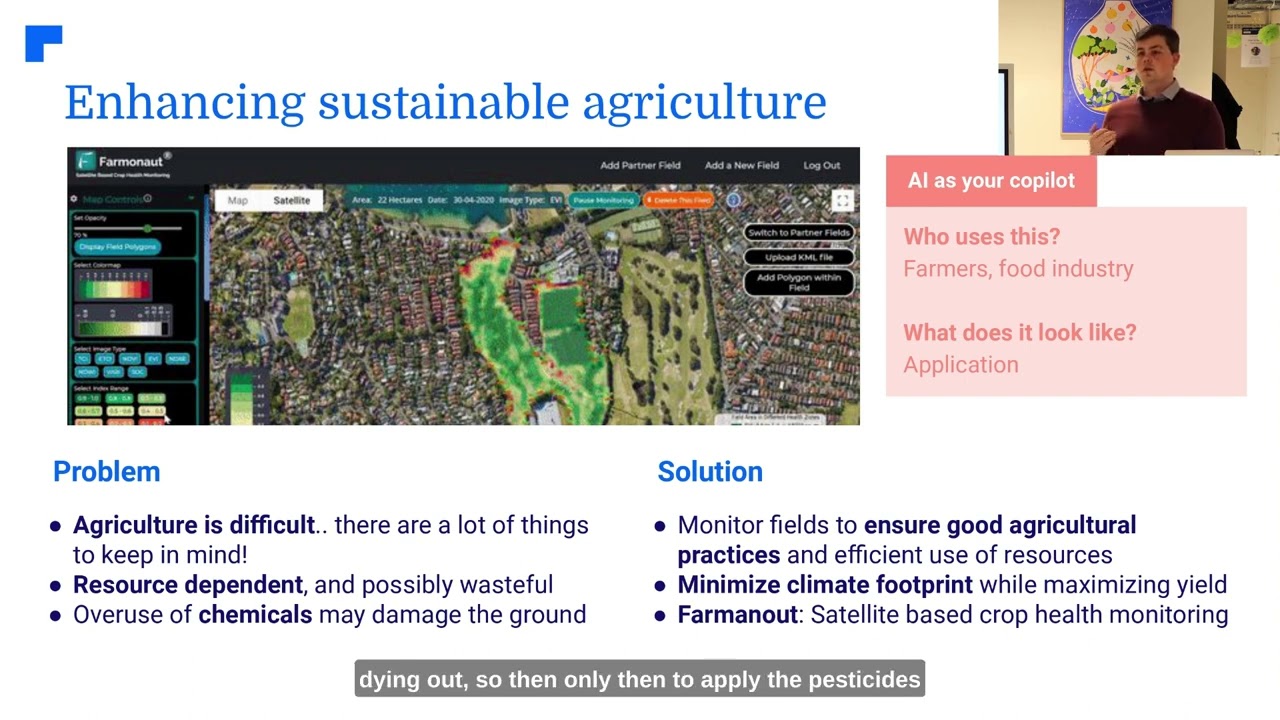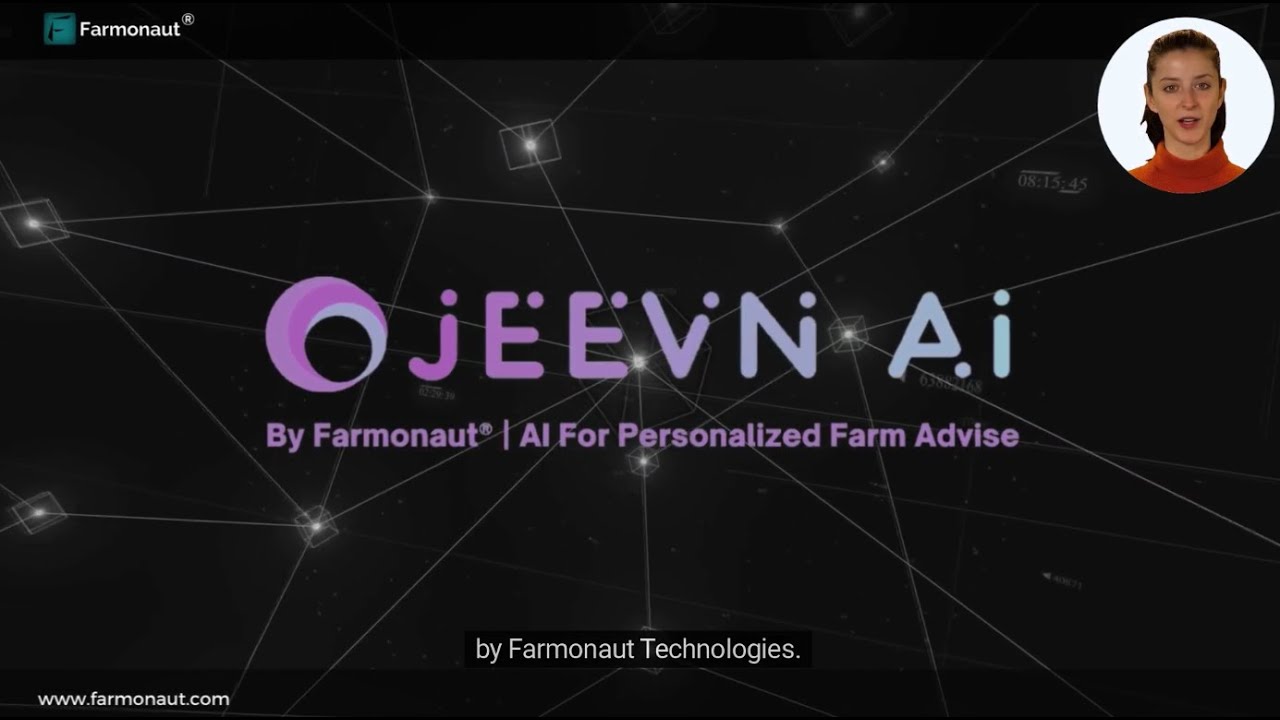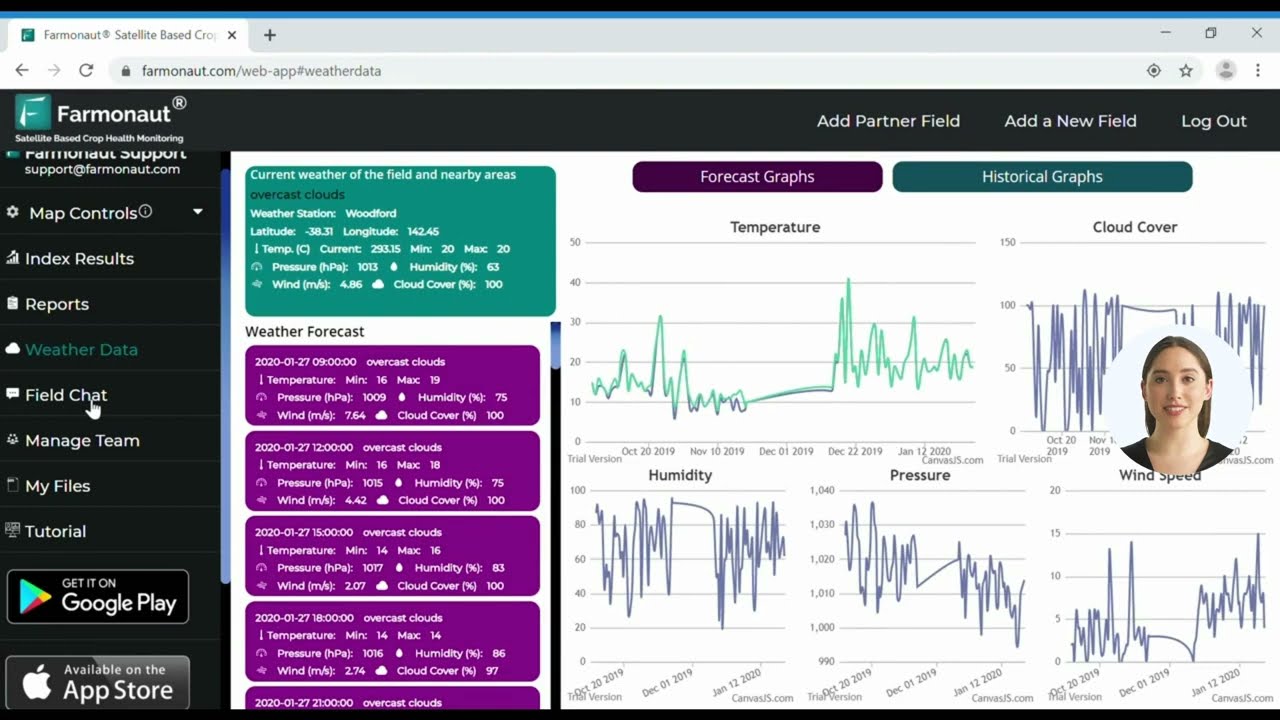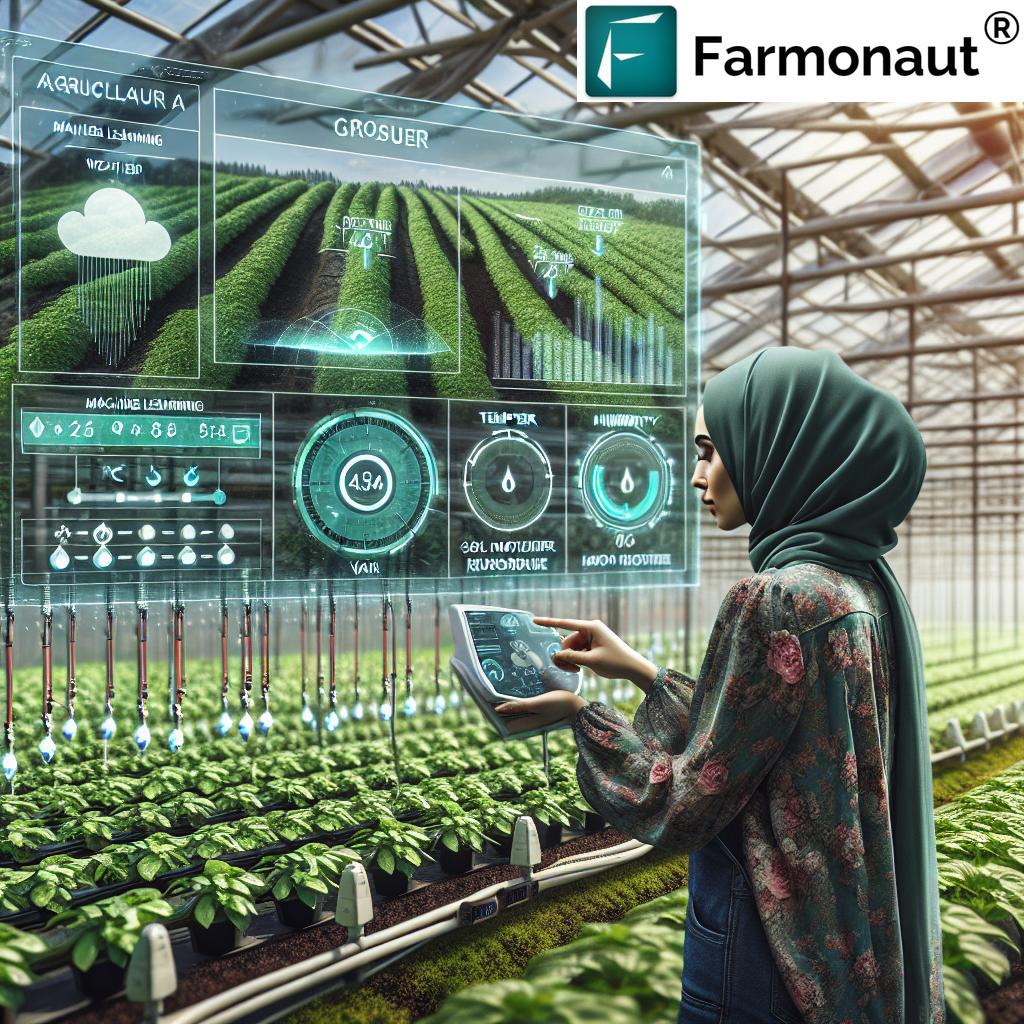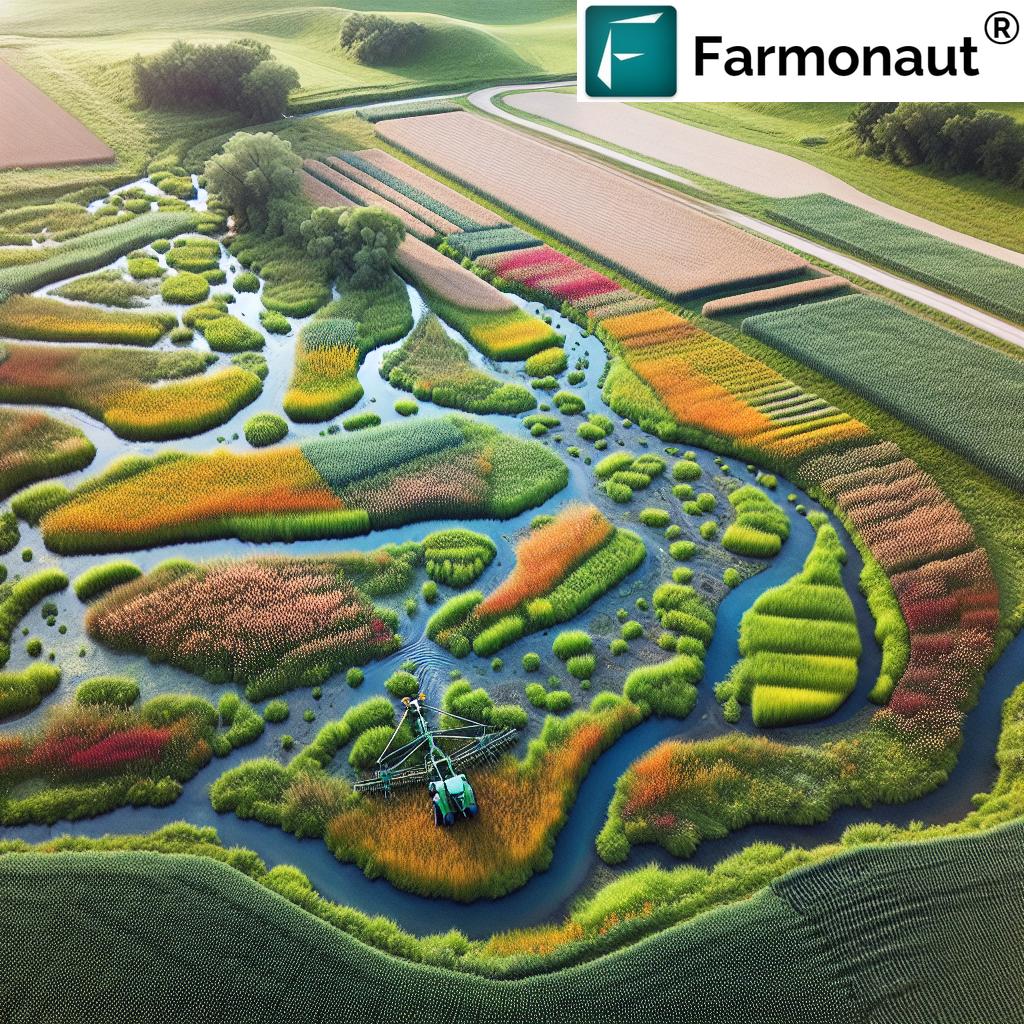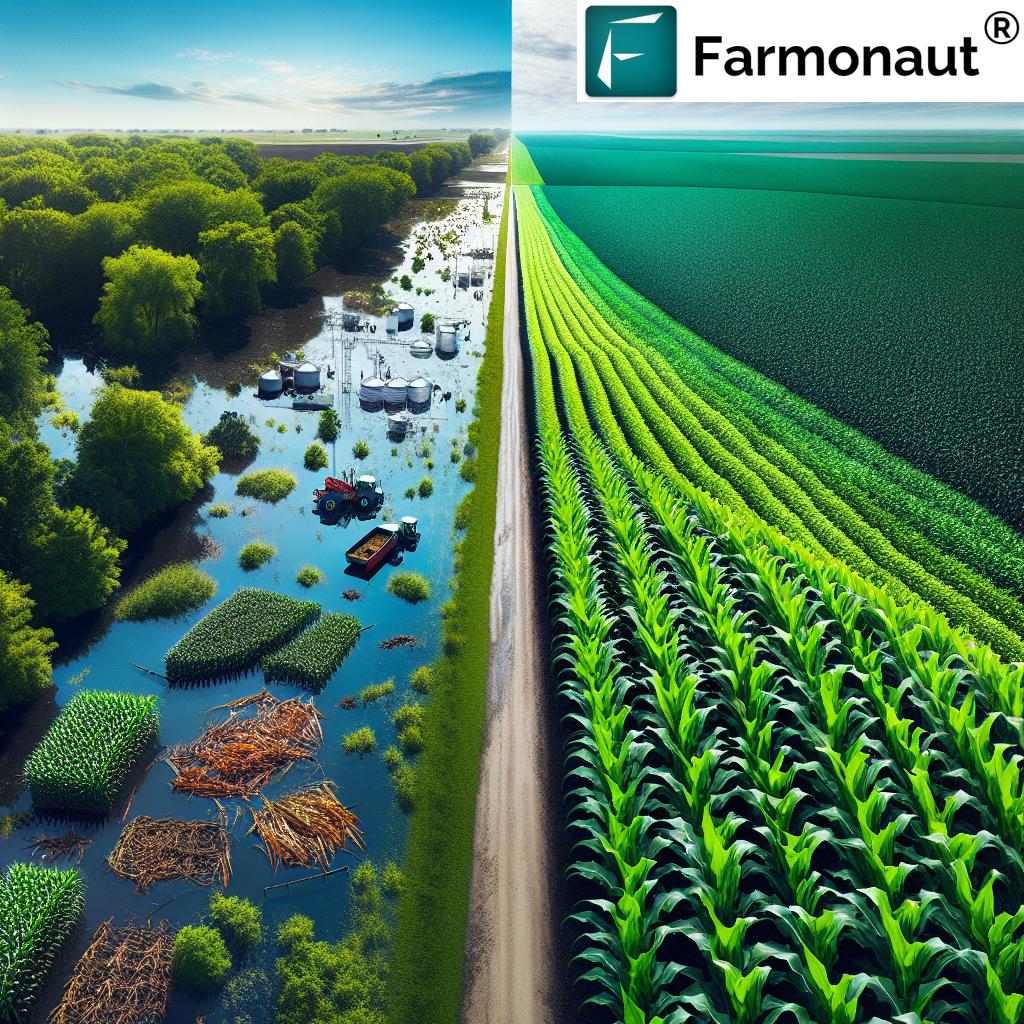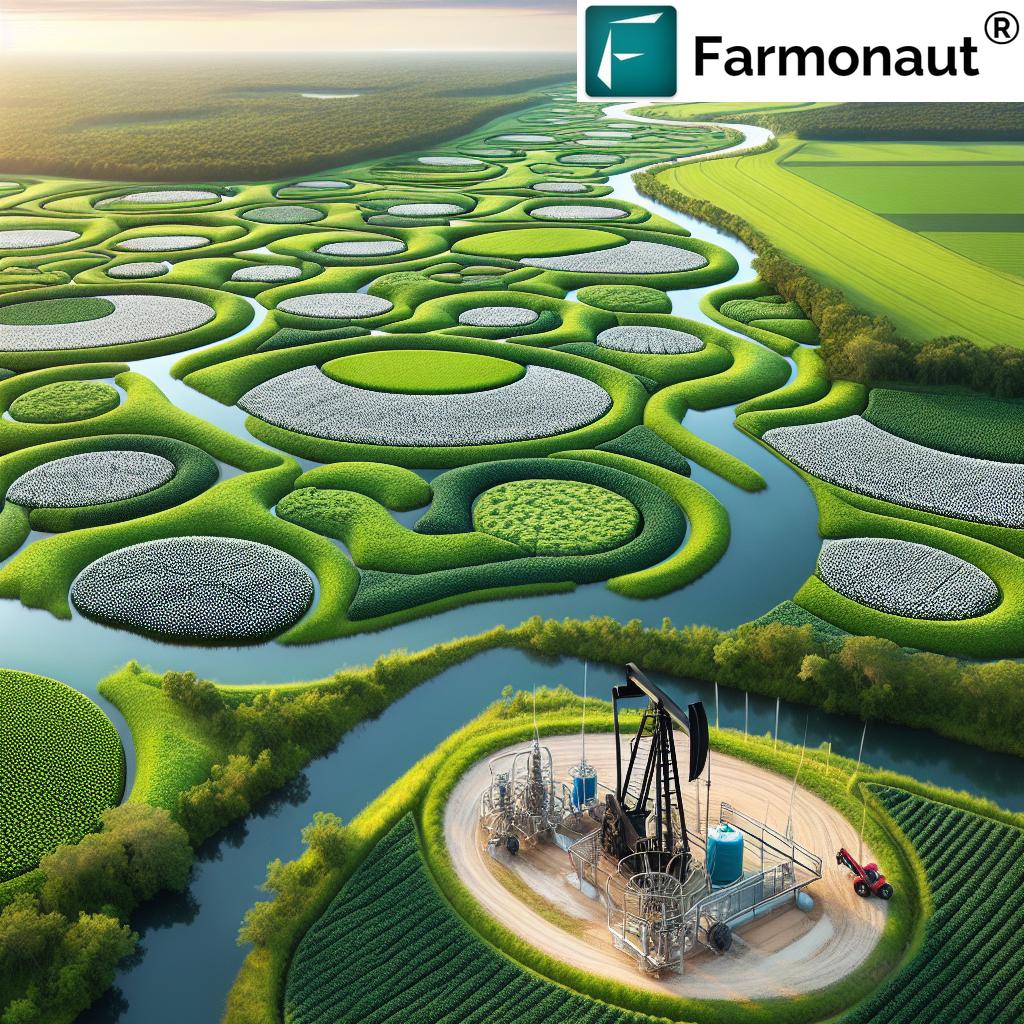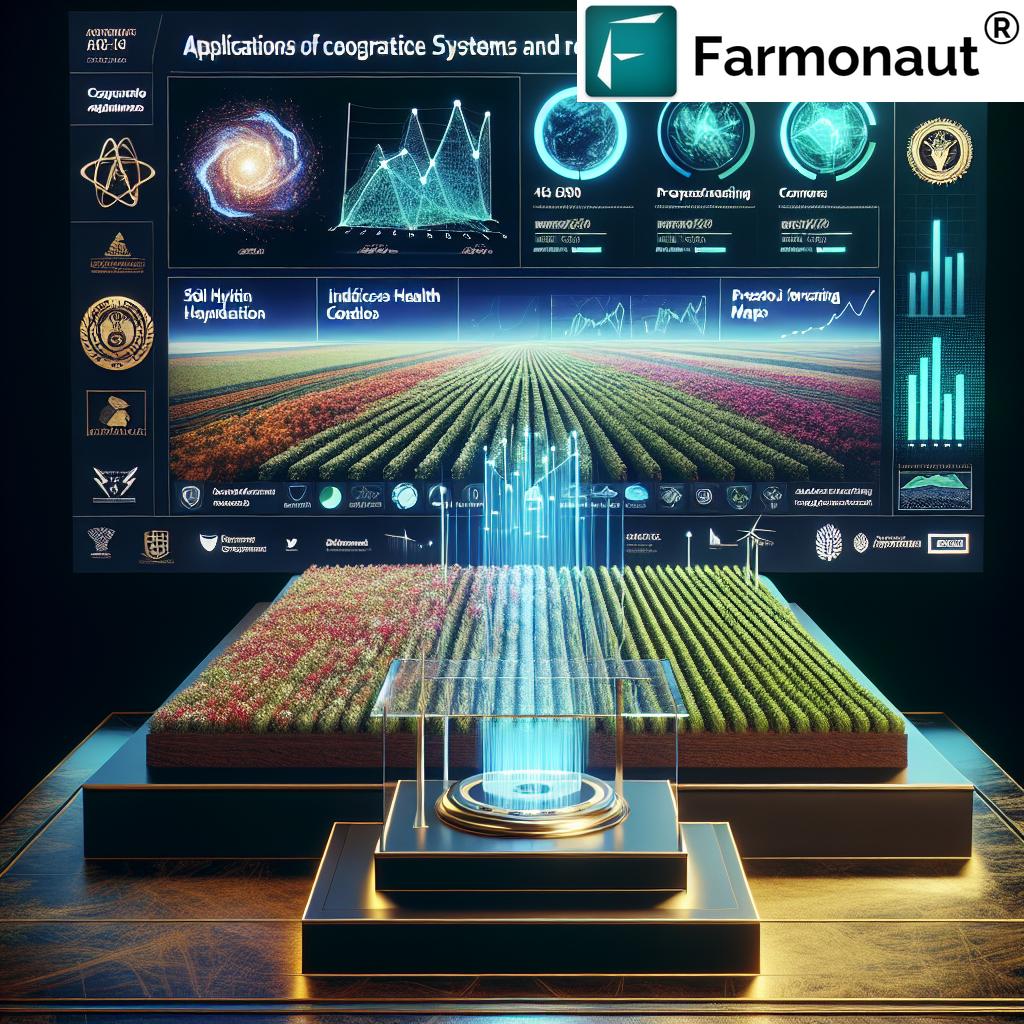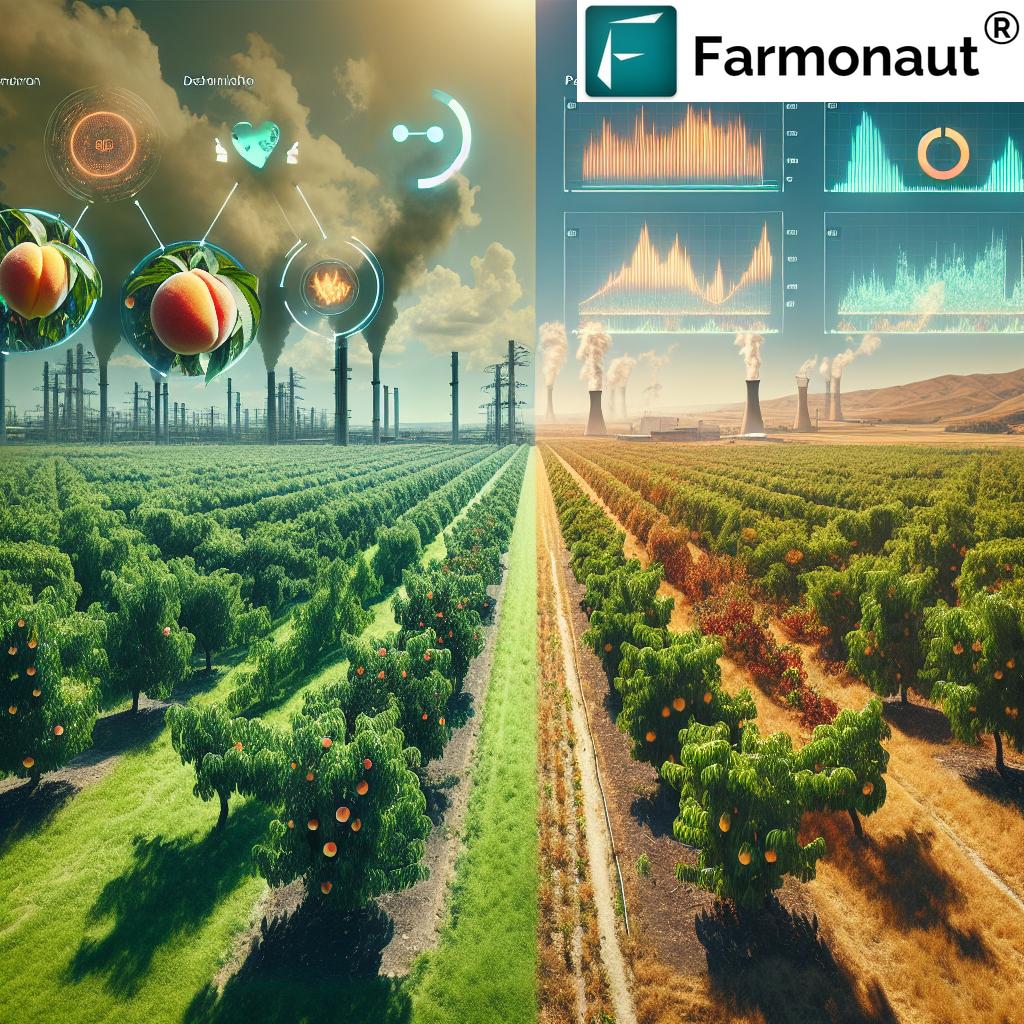AI-Based Irrigation Scheduling: Boost Hawaii Yields Fast!
Table of Contents
- Introduction
- Did You Know?
- Understanding AI-Based Irrigation Scheduling
- Key Components of AI-Driven Irrigation Systems
- Farmonaut’s Advanced Solutions for Precision Irrigation
- Comparison Table: Traditional vs. AI-Based Irrigation
- Benefits of AI-Based Irrigation Scheduling
- Challenges of Implementing AI-Based Irrigation Systems
- Real-World Smart Irrigation Technology: Sensors, Data, and Control
- Special Considerations for Hawaii’s Agriculture
- Key Farmonaut Technologies Enhancing Irrigation and Sustainability
- The Future of AI-Based Irrigation in Hawaii
- Hawaii Trivia: AI and Smart Sensors in Action
- FAQ
- Get Started with Farmonaut
“AI-based irrigation scheduling can reduce water usage by up to 30% while increasing crop yields by 20% in Hawaii.”
Introduction: Revolutionizing Hawaii Agriculture with AI-Based Irrigation Scheduling
In the heart of the Pacific, Hawaii’s agricultural tradition meets modern technology as AI-based irrigation scheduling drives a new era of efficiency and sustainability. Leveraging artificial intelligence (AI), advanced smart sensors, and precision agriculture, we are unlocking unprecedented water optimization, robust crop yields, and environmental sustainability. The challenge of conserving fresh water while meeting growing food demands is acute; Hawaiʻi’s unique climate, valuable soil, and diverse crops make intelligent irrigation absolutely essential.
In this comprehensive guide, we explore what makes AI-based irrigation scheduling a transformative force for Hawaiian farmers, the key components and technologies powering this revolution, localized best practices, and how Farmonaut’s satellite-powered services seamlessly integrate to deliver actionable insights, higher yields, and sustainable farming in these lush islands.
Understanding AI-Based Irrigation Scheduling
AI-based irrigation scheduling represents a leap beyond traditional irrigation methods. Instead of relying on fixed schedules or manual observation, we are enabled by AI-driven systems that analyze diverse data inputs such as soil moisture sensors, weather forecasts, crop type, and even crop growth stage. By integrating these variables, machine learning models predict the optimal irrigation timing and precise quantity of water needed for each field.
In Hawaii, managing water is not just about saving resources—it’s about ensuring food security, reducing costs, and building resilience against climate change. With AI in agriculture, we turn data into action: scheduling irrigation only when crops need it and in the amounts required. These precision irrigation systems reduce waste, support sustainable farming practices, and empower farmers to focus on plant health and yield.
- So, how does AI-based irrigation scheduling work?
- Collects real-time data from soil moisture sensors, weather stations, and other sources.
- Uses artificial intelligence algorithms to analyze patterns, trends, and predictions from this extensive data.
- Continuously learns and adapts using machine learning for irrigation—increasing accuracy with time and experience.
- Automates irrigation control systems to ensure crops receive precise water application for optimal crop growth.
Key Components of AI-Driven Irrigation Systems
1. Data Collection and Soil Moisture Sensors
The foundation of effective AI-powered irrigation scheduling rests on robust data collection. Soil moisture sensors placed at various depths deliver accurate, timely, and comprehensive data on moisture content, temperature, and other environmental factors. Weather stations supplement this by providing real-time rainfall, humidity, and temperature records. These environmental factors are critical in determining current and forecasted irrigation needs.
2. Data Analysis and Machine Learning: Turning Data into Insights
With state-of-the-art agricultural data analysis, AI identifies patterns, trends, and correlations from historical and current data. These algorithms are trained over time, further refining their precision in predicting soil moisture needs for different crops, seasons, and weather conditions. Machine learning for irrigation ensures that our models learn and adapt, improving both efficiency and outcomes.
3. Automated Irrigation Control Systems
Irrigation control systems translate actionable AI insights into real-world results. These systems can automate irrigation equipment—from pivots to drip lines—immediately responding to predicted needs. The result? Less human error, real-time control, reduced labor costs, and truly efficient irrigation schedules.
Farmonaut’s Advanced Solutions for Precision Irrigation
Farmonaut is at the forefront of accessible, affordable precision agriculture and resource-efficient farm management worldwide—including Hawaii. By integrating satellite-based remote sensing, AI-driven advisory systems (like Jeevn AI), and real-time crop health and soil moisture analytics, Farmonaut empowers farmers to:
- Monitor fields daily, identify dry spots, and optimize irrigation scheduling in tune with actual soil moisture levels
- Predict and minimize water waste, maximizing output per acre and ensuring sustainable crop management
- Receive weather-based irrigation control recommendations and multi-layer data visualisations—straight from mobile, web, or via API (Explore Farmonaut API | API Developer Docs)
The Jeevn AI Advisory System delivers personalized insights on weather, irrigation, and sustainability strategies 24/7—tailored to every Hawaiian crop, whether sugarcane, pineapple, coffee, taro, or tropical vegetables.

Access Farmonaut’s crop monitoring tools anywhere—on Android, Google Play, and iOS App Store!
Comparison Table: Traditional vs. AI-Based Irrigation Scheduling in Hawaii
| Irrigation Method | Estimated Water Usage (liters/acre) | Estimated Crop Yield Increase (%) | Estimated Resource Savings (%) | Sustainability Impact (Score) |
|---|---|---|---|---|
| Traditional | 78,000–89,000 | 0–1% | 5–10% | 2/5 (limited conservation, high water waste) |
| AI-Based | 52,000–62,000 | 2.3–4.3% | 30–70% | 5/5 (high conservation, minimized waste, sustainable growth) |
*Estimated averages, derived from current studies in AI-based irrigation scheduling and regional Hawaiian practices.
Benefits of AI-Based Irrigation Scheduling for Hawaii Farmers
- Water Conservation: By precisely matching irrigation schedules to true crop needs, AI-based systems can reduce water usage by up to 30–70%, critical for islands with limited freshwater resources.
- Enhanced Crop Yields: Consistent optimal soil moisture levels lead to healthier, more robust crops; studies show yield increases up to 4.3% compared with conventional methods.
- Significant Cost and Energy Savings: More efficient irrigation cuts energy costs (less pump time) and labor requirements, letting Hawaiian farmers invest more in quality and scale.
- Support for Sustainable Practices: AI-based irrigation not only helps fight water waste but also aligns with climate change mitigation by reducing emissions (Carbon Footprinting tools from Farmonaut empower farms to assess and lower their environmental impact).
- Improved Resilience: Weather-driven AI irrigation adapts instantly during droughts, storms, or changing weather; the system never stops learning, refining, and protecting your crops.
- Transparency and Traceability: Integrating Product Traceability technologies to ensure supply chain transparency, so that sustainably irrigated crops are certifiable from field to consumer.
Challenges of Implementing AI-Based Irrigation Systems in Hawaii
- Data Quality and Availability: The accuracy of AI scheduling models depends on the quality, frequency, and reliability of collected data. Farms lacking proper sensor networks can see limited benefits or need investment in data infrastructure.
- High Initial Setup Costs: Smart sensors, connectivity, and automated control mechanisms can carry upfront costs, which can be a barrier for small and medium-sized farms without technology grants or subsidies.
- Technical Expertise Required: Deploying, calibrating, and troubleshooting AI systems and interpreting agricultural data analysis requires ongoing training and support for farm managers.
- Data Security and Privacy Concerns: As AI in agriculture gathers extensive farm-level data, ensuring that this sensitive information is safeguarded and used ethically is essential.
- Adaptation to Hawaii’s Unique Environment: Customizing AI models to local conditions—volcanic soils, rainfall patterns, diverse microclimates—requires dedicated research and locally trained algorithms.
Farmonaut’s solutions offer subscription-based, scalable access to advanced analytics and soil monitoring without a heavy hardware burden—see below for how to subscribe!
Real-World Smart Irrigation Technology: Sensors, Data, and Control
- Soil Moisture Sensors: Inserted into the root zone, these sensors relay immediate soil hydration levels, supporting real-time, localized adjustments to irrigation. In Hawaii, where soil profiles range from rich volcanic loams to sandy coastal stretches, sensor feedback is invaluable.
- Weather-Based Irrigation Controllers: These systems communicate with local weather stations and/or access satellite weather data (a service offered by Farmonaut) to automatically pause, reduce, or intensify watering based on incoming rainfall forecasts and temperature trends.
- Satellite Imagery and Remote Sensing: Farmonaut provides NDVI (Normalized Difference Vegetation Index) and other crop health indices derived from up-to-date multispectral satellite images, highlighting field areas under stress or requiring irrigation adjustment—no field walking required!
- Centralized Farm Management Platforms: With web, Android, and iOS interfaces, all of these devices and sensors can be monitored and controlled from a smartphone or computer, empowering not only large agribusinesses but also individual Hawaiian farmers.
Learn more about large-scale or government-wide farm management with Farmonaut’s Agro Admin App—a solution crafted for organizations and plantations seeking to maximize efficiency through central oversight.
Special Considerations for AI-Based Irrigation Scheduling in Hawaii
- Diverse Microclimates: From arid leeward plains to lush windward valleys, Hawaii’s agricultural regions vary dramatically in rainfall, temperature, and humidity. AI models trained on local weather and soil data enable region-specific solutions that outperform one-size-fits-all schedules.
- Tropical Crop Diversity: Pineapple, coffee, taro, bananas, macadamia, and unique vegetable crops each have specific root depths, water requirements, and sensitivity to drought or overwatering. AI-based scheduling can tailor recommendations down to crop type, growth stage, and even field section.
- Water Resource Constraints: Hawaii must safeguard its underground aquifers and surface water; precision irrigation systems empowered by AI are the best path forward for food security, lower water bills, and sustainability.
- Climate Change Resilience: With unpredictable rainfall and increasing drought risk, Hawaii needs AI-based irrigation that adapts to weather anomalies in real time and can deploy drought mitigation strategies immediately when needed.
“Precision agriculture with smart sensors enables real-time monitoring of soil moisture, optimizing irrigation for over 50,000 Hawaiian acres.”
Key Farmonaut Technologies Enhancing Irrigation and Sustainability
Satellite-Based Crop and Soil Moisture Monitoring
- Access up-to-date NDVI, soil moisture, and crop stress maps for your Hawaiian farm—make informed decisions about when, where, and how much to irrigate, minimizing waste and boosting yields.
- Unlike expensive on-field sensors, Farmonaut’s satellite-based approach is affordable, scalable, and ideal for small parcels or vast plantations.
AI-Driven, Personalized Advisory with Jeevn AI
- Obtain real-time, data-driven recommendations on irrigation scheduling, fertilizer use, pest/disease management, and climate risk using Farmonaut’s AI—tailored to each Hawaiian microclimate.
- Reduce costs, improve yields, protect the environment—all from an easy-to-use smartphone app.
Blockchain-Based Product Traceability
- Build trust and transparency into your Hawaiian supply chains by certifying the use of sustainable farming practices (including AI-driven irrigation) from farm to table. Visit Product Traceability for more.
Fleet and Resource Management
- Monitor fleet efficiency, optimize farm machinery, and reduce operational costs. Farmonaut’s Fleet Management platform integrates with satellite data for seamless field logistics.
Carbon Footprint Tracking
- Use Farmonaut’s Carbon Footprinting tool to measure and minimize the environmental impact of irrigation and other farm practices—supporting your sustainability certifications and compliance needs.
Crop Loan and Insurance Support
- Access easier loans and insurance with satellite-based crop verification: learn more at Farmonaut Crop Loan & Insurance.
The Future of AI-Based Irrigation in Hawaii and Beyond
- As the technology matures, costs will decline while ease of adoption increases. Expect near-universal use of weather-based irrigation control and AI-scheduled irrigation across commercial and even home-scale Hawaiian farms by 2030.
- AI-driven platforms will support decision-making at every level—from what crops to plant (given future weather patterns) to which fields get optimized irrigation and when.
- Coupled with blockchain traceability and carbon tracking, Hawaii’s sustainable brand will strengthen, supporting both the environment and market value.
- Developers and researchers will build upon Farmonaut’s API (API Access) to create hyper-local, customized analytics for every microclimate, crop, and grower.
Frequently Asked Questions: AI-Based Irrigation Scheduling for Hawaii
What is AI-based irrigation scheduling?
It is the use of artificial intelligence, software, and smart sensors to determine when, where, and how much to irrigate crops, ensuring optimal water use and boosting yields. AI algorithms process real-time data on soil moisture, weather, and crop requirements to automate and optimize the irrigation process.
How does AI-driven irrigation outperform traditional methods?
The AI system uses data and machine learning to minimize water waste and human error, ensuring every crop gets the precise amount of water it needs for maximum growth. In contrast, traditional methods often overwater or underwater crops, use more labor, and result in wasted resources.
Can Hawaiian farmers afford and access these technologies?
Yes. Platforms like Farmonaut offer affordable, subscription-based solutions accessible via phone apps, web platforms, and APIs, reducing or eliminating the need for costly field hardware.
Are soil moisture sensors mandatory for using AI-based scheduling?
While they greatly increase accuracy, advanced satellite-based solutions (like Farmonaut’s NDVI/soil moisture analytics) can provide meaningful scheduling even without ground sensors, particularly for remote or large Hawaiian fields.
How does AI in agriculture help with sustainability?
AI-based irrigation saves water, reduces energy use, cuts chemical input needs, and slashes the farm’s environmental impact. Features like carbon footprinting and traceability help Hawaiian agriculture lead the world in ecological responsibility and transparency.
What different platforms are available for AI-powered irrigation management?
Farmonaut supports Android, iOS, web browser, and API interfaces—ideal for everyone from individual farmers to corporate and government farm managers.
How do I start using AI-based irrigation with Farmonaut?
Sign up for a Farmonaut subscription, log into the platform on your chosen device, overlay your farm boundaries, and begin receiving customized crop health, soil moisture, and irrigation recommendations right away!
Ready to Boost Your Yields with Precision Irrigation?
The future of Hawaiian agriculture is smart, sustainable, and data-driven. With AI-based irrigation scheduling, soil moisture sensors, and precision agriculture systems—enabled by Farmonaut—you can conserve water, reduce costs, and increase yields, all while building a resilient, climate-smart farm.
Explore Farmonaut. Embrace the power of AI. Transform irrigation, yields, and sustainability—faster than ever!


